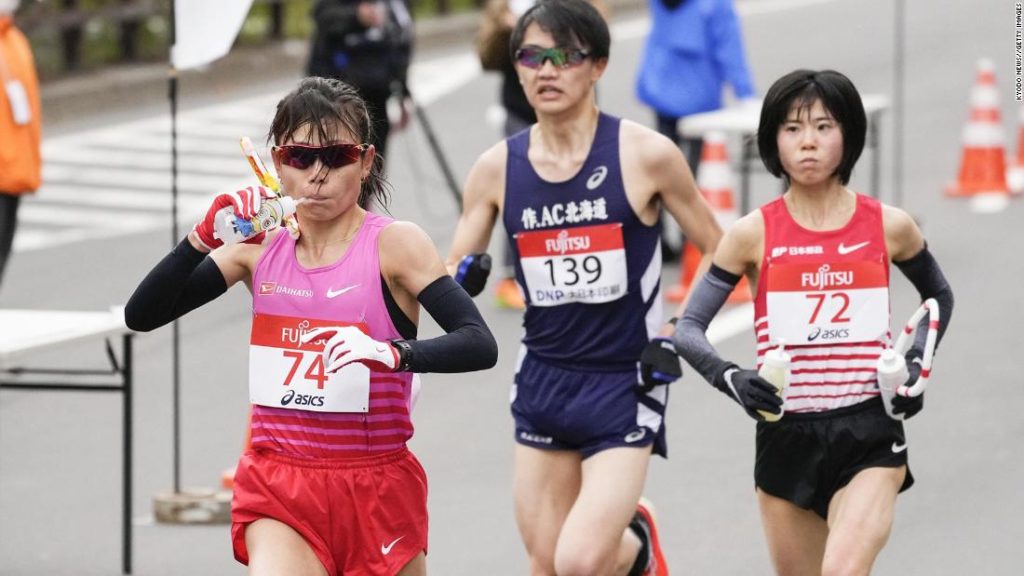The report, published Wednesday by the British Association for Sustainable Sport, details the concerns of leading athletes and scientists about the health impacts of soaring temperatures in Japan.
According to the report, the average annual temperature in Tokyo “has increased by 2.86 degrees Celsius since 1900, more than three times as fast as the world’s average.”
The Olympics are due to run from July 23 to August 8 — a time when Japan usually experiences its highest annual temperatures, which are soaring even higher in the warming climate.
“I think we’re certainly approaching a danger-zone,” Great Britain rower and Olympic hopeful Melissa Wilson told the study’s authors. “It’s a horrible moment when you see athletes cross the line, their bodies fling back in total exhaustion, and then not rise up.”
The study details how events such as the triathlon, the marathon, tennis and rowing could be adversely impacted by hot conditions.
It also provides advice to athletes on how to cope with competing in the heat, as well as warning how the climate crisis could derail sporting events in the future.
“Olympic organisers must take the warnings in this report seriously or face a real risk of competitors collapsing through heat exhaustion,” said Mike Tipton, professor of human and applied physiology at the Extreme Environments Laboratory, School of Sport, Health & Exercise Science at the UK’s University of Portsmouth.
“In a sporting context, a hot and/or humid environment can represent a risk to the performance and health of spectators, officials and athletes. From sunburn, through cognitive impairment, to heat exhaustion or collapse from heat stroke, all facets of a sporting event — and all those involved — can be adversely affected.”
The International Olympic Committee did not immediately respond to CNN’s request for comment regarding the report.
This includes preparing venues so that individuals remain as cool and hydrated as possible, providing weather forecasts, and supplying information on how to mitigate heat risks and treat any resulting symptoms.
“While the average high temperature in Tokyo during the Olympics (late July to early August) is 30-31 C (86-88 F), they frequently experience high temperatures in the mid 30s (mid 90s F) and in recent years have even approached 40 C (104 F),” said CNN meteorologist Taylor Ward.
“Combining this heat with very high humidity has led to several deadly summer heat waves across Japan in recent years. These conditions will no doubt put extreme strain on athletes in outdoor venues during the Olympics,” Ward said.
It’s not just the Olympics that has to take searing temperatures into consideration.
You may also like
-
Super League: UEFA forced to drop disciplinary proceedings against remaining clubs
-
Simone Biles says she ‘should have quit way before Tokyo’
-
Kyrie Irving: NBA star the latest to withhold vaccination status
-
Roger Hunt: English football mourns death of Liverpool striker and World Cup winner
-
‘Every single time I lift the bar, I’m just lifting my country up’: Shiva Karout’s quest for powerlifting glory

